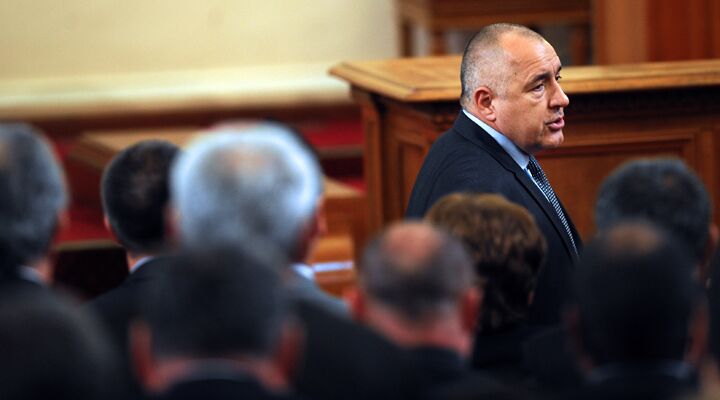
Euro Crisis Brings Down Bulgaria’s Government
Bulgaria’s prime minister resigned February 20, after rising energy prices triggered the country’s largest protests in 15 years. “The people gave us power and today we are returning it,” said Prime Minister Bojko Borisov, just a day after insisting he would not step down. Parliament approved his resignation on February 21.
“I will not participate in a government under which police are beating people,” he said. “Every drop of blood is a shame for us.” The night before, 14 were injured in clashes with riot police in Sofia.
Bulgarians have suffered through several years of weak growth, rising taxes and rising unemployment. High energy prices and accusations of corruption triggered the protests, but the broader issues mean that many have lost confidence in the whole political class. Borisov’s resignation has not stopped the protests and more are planned for the weekend.
Political analyst Andrei Raichev from Gallup International in Bulgaria warned that “We could even reach the absurd situation that the protests continue against no one; which means that they are against everyone.”
Parliamentary elections were scheduled for July. These will probably be brought forward to April, and a caretaker administration put in place. But even the elections aren’t expected to solve much. A clear winner is unlikely, meaning the country will probably become bogged down in coalition negotiations.
In addition to corruption, a root of Bulgaria’s troubles is the euro. Bulgaria maintains a fixed exchange rate with the euro, which it aims to adopt at some point. Although it’s not a member of the eurozone, the linked currency means it’s sharing in the eurozone’s problems—many of its economic troubles are an extension of the euro crisis.
The Telegraph’s Ambrose Evans-Pritchard wrote that Bulgaria’s efforts to link its currency with euro “is a key reason why Bulgaria has failed to reach its full potential as a catch-up economy and will almost certainly languish in deep crisis for years to come.”
“Turkey is doing much better,” he wrote. “So is Ukraine. So is Moldova. In fact, the lesson is that if you want to prosper as a developing economy on Europe’s fringes, keep well-clear of the [Economic Monetary Union] project.”
Governments in Italy, Greece, Portugal and the Netherlands have all been brought down by the euro crisis. Though not euro members, the governments in the Czech Republic, Hungary, Latvia and Romania also resigned early 2009. There’s been a break in the destabilization in recent months. But the fall of Bulgaria’s government shows the crisis is not over, and it will continue to bring down governments with social unrest.
Greece also experienced mass protests this week. An estimated 40,000 turned out in Athens, February 20. A further 15,000 gathered in Thessaloniki, according to official estimates. The country’s two main trade unions, representing 2.5 million people, held strikes the same day.
“For us, the time has come for a major confrontation with the government,” said general secretary of the civil servants union adedy, Ilias Iliopoulos. “A social explosion is very near,” he told Reuters.
European politicians seem to believe that they can solve the crisis simply by proclaiming it over. But the social unrest will continue.
The euro was set up so it would cause a crisis, forcing European nations to centralize power. It is doing its work, and will continue to do so. Watch for the crisis to get worse, forcing nations to hand more and more sovereignty over to the European Union. For more background on the crisis, see Trumpet editor in chief Gerald Flurry’s article, “Did the Holy Roman Empire Plan the Greek Crisis?”
